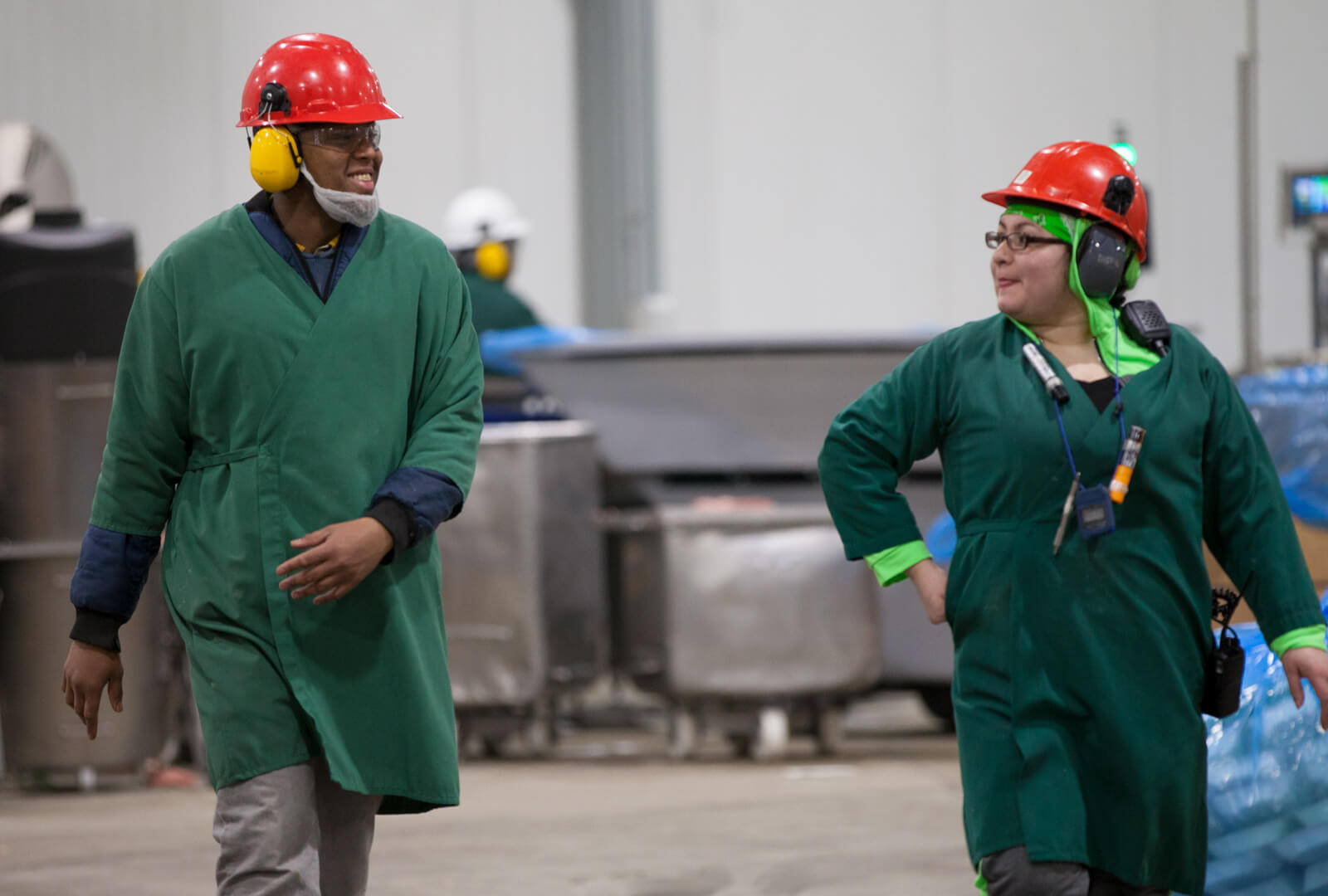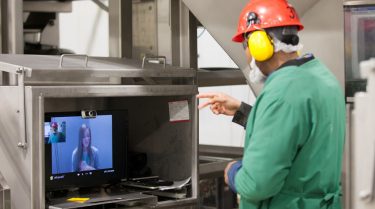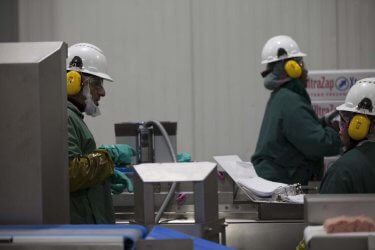Tung Truong likes to tell the story of the first day he met Abdullahi Moallin. As part of the hiring process at the Jennie-O Turkey Store in Faribault, Minnesota, Truong, a production supervisor, takes applicants on a plant tour. The practice is a useful one. It allows prospective employees to see firsthand what sort of work they’ll be doing. Moallin stood out from the group right away. He had brought with him an interpreter who was rapidly translating Truong’s words into American Sign Language.
But there were other things about Moallin that made him stand out. “This guy was different,” Truong remembers. “He was very excited and engaged with everything I was showing him and teaching him.”
As impressive as Moallin’s enthusiasm was, Truong knew the plant would have to make accommodations. The safety of his workers around plant machinery is one of Truong’s top concerns, and he knew it would take thoughtful effort and some creativity to ensure that he could communicate with Moallin both during a shift and in the case of an emergency. “After that first day meeting him,” Truong remembers, “I strongly believed that something really good was going to come from hiring him. I knew that working together, we could figure out how to keep him safe.”
Moallin, who was born in Somalia, lost his hearing as a child when his house was hit by rockets during the country’s Civil War. In 2014, as a teenager, he emigrated to the United States with his family. “When I first came to America,” he signed recently, “I didn’t have any school, nothing. So it was really a struggle.” The opportunity Truong gave him to work for Jennie-O was a turning point. Working on the tray-pack production line, Moallin proved to be a reliable worker and a remarkably fast learner.
“When I was training the new group, when I tried to explain something, he picked it up faster than the translator,” says Troung.
Plant manager Jody Long was also impressed. “Everything we thought that would maybe be a challenge he overachieved at,” he says. “He was as good as it gets.”
A few months later, Truong found he had another deaf applicant on his plant tour. Moallin, it turned out, had been so pleased with the opportunity he was given at the Jennie-O Turkey Store that he had begun to spread the word to others in the deaf community.
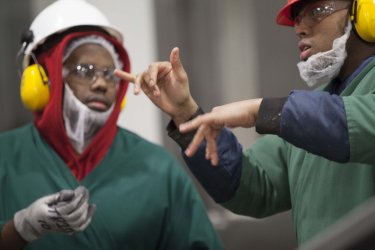
Expanding The Roster
Truong soon hired his second deaf employee. Now, only a few years after hiring Moallin, nearly a third of his 37 team members are deaf or severely hard of hearing.
“In the beginning, when I was the only deaf worker, it wasn’t easy,” reports Moallin, communicating through an interpreter. “Now those of us who have already learned the job can teach the new hires and things are much easier.”
Offering help and advice to fellow members in the hard of hearing community is common, said fellow employee Abdifatah Jimale recently through a sign language interpreter. Jimale was also born in Somalia, where he lost his hearing as a young boy.
“I’m thankful to Abdullahi for taking the lead in introducing us to the Jennie-O Turkey Store plant,” he explained. “He not only encouraged many of us to apply, he’s taken the lead in helping orient and train us and has been an advocate for us.”
So many of the hearing employees use some sign language that if you were just watching the factory floor you wouldn’t be able to tell who was deaf and who wasn’t.
JODY LONG, PLANT MANAGER
“So many of the hearing employees use some sign language that if you are watching the factory floor, you can’t tell who is deaf or hard of hearing and who isn’t,” says Long. “The drive of these workers and the support they have received from their coworkers have been exemplary. They’ve overcome so many difficulties and challenges. They are dedicated to proving that they have the ability to achieve. They were hungry to achieve and become leaders.”
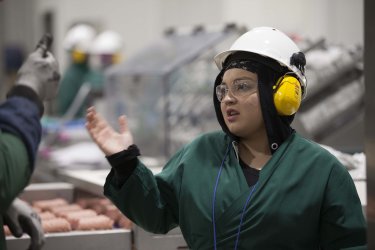
The deaf community has fought for generations for equity in the workplace, and much potential remains untapped. More than 144,000 working-age Americans are totally deaf. Another 360,000 are unable to hear a normal conversation, even with the use of a hearing aid. Half of all cases of hearing loss can be easily treated or prevented, at least for those who have access to health care. This explains why many deaf Jennie-O Turkey Store workers come from impoverished or wartorn countries like Somalia, where immunizations, antibiotics, and child health care aren’t widely available.
“I think the management here has become convinced that we can do any job we are trained to do,” says Moallin. “We know how to overcome obstacles and succeed. I am so proud to work here.”
Truong is equally proud of his team. Both men acknowledge that it began with their partnership. Together they built a bridge of communication and trust that others could cross.
“My hope is that other companies and other plants will take our momentum and keep going,” says Truong, who plans to learn more American Sign Language. “The deaf workers I’ve met have such strength and they really want to show off what they can do.”
Moallin has taken a break from his position at Jennie-O to care for his mother, who is recovering from an illness, but his legacy as an ambassador to the deaf community is still felt at the Faribault plant.
“Abdullahi is the most positive and energetic guy I have ever met,” says Long. “When they tell you that they wanted to come here for the opportunity and they understood that we will give them a chance, it almost breaks your heart that people don’t see each other for who they are.”
